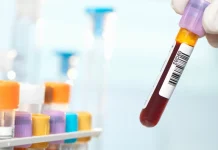Thailand is one of the best medical tourism destinations in Asia. Much investment has been made in hiring highly trained medical professionals and equipping accredited hospitals with state-of-the-art technology. The kingdom is considered to have a world-class healthcare system that offers a wide variety of medical treatments at far more affordable pricing than you would get in the west.
Medical tourists that travel to Thailand are therefore able to combine their medical treatment with a relaxing and therapeutic vacation stay in a tropical paradise. With the government supporting this industry, it comes as no surprise that they have created a specific visa category that caters to such travellers. This is the non-immigrant visa category “O” or O medical visa.
Non-Immigrant Visa Category “O”
Also known as the “O” medical visa or medical tourist visa (MT), it is granted to non-Thai applicants seeking to enter Thailand for purposes of medical tourism. This can apply to all kinds of medical treatment, excluding that for Covid-19. The same should also be applied for by anyone accompanying the person seeking treatment, of which there should be no more than three accompanying immediate family members.
The MT visa is valid for 90 days. The recipient must travel to Thailand within 90 days from the date of issuance of the visa. They will then be allowed to stay in Thailand for a period of up to 90 days from the date of entry into the kingdom.
Though this is a single-entry visa, if the person wishes to depart and re-enter Thailand during their 90-day period of stay, they will need to apply for a re-entry permit before departure. If they depart without doing this, their visa will be voided and to return, they will have to start the process over.
If there is a need to stay beyond the 90-day limit, they may apply for an extension of stay at the Office of Immigration Bureau. Approval for any extension of stay will be at the discretion of the immigration officer.
Procedure When Travelling for Medical Treatment to Thailand
Search for an accredited hospital in Thailand that has been approved by the Ministry of Public Health (MOPH) to accept and quarantine foreign patients. Send a request to the Department of Health Service Support (HSS). The patient should obtain a confirmation letter, affidavit of support and summary of vehicles for the patient, if needed.
Upon submission of these and other required documents to the HSS and approval is granted, the department will submit the list of approved patients and their accompanying family members to the Ministry of Foreign Affairs which will, in turn, notify the embassy or consulate to issue the applicants with Certificates of Entry (COE) and the approved visa. The applicants will need to complete the Online Visa Application (OVA) within 10 working days of the date they intend to travel.
Required Documents
- Valid travel document or passport with remaining validity of at least 6 months and at least one completely empty visa page.
- Completed and duly signed visa application form.
- Two passport-sized photographs taken within the last 6 months. More copies of the application form and passport photos may be required depending on which country you are applying for your visa from.
- Copy of flight confirmation, itinerary, or reservation to and from Thailand.
- Copy of confirmation letter or affidavit of support with a stamp from the Ministry of Public Health (MOPH) of Thailand. This is certification from the hospital in Thailand that has confirmed the admission of your patient and what arrangements for quarantine have been made for at least 14 days for both the patient and accompanying family members.
- Copy of Affidavit of Support Letter with the stamp from MOPH for accompanying persons.
- Proof of adequate financing for the entire duration of stay in Thailand. For example, a bank statement that indicates bank contact information and confirms the deposit amount. In the event the patient is dependent, there needs to be supporting documents establishing the familial relationship with the accompanying adult family member such as a birth or marriage certificate.
- Required documents for Certificate of Entry (COE) application. This can include a copy of health insurance confirming coverage for medical treatment being sought, including Covid-19 for the entire period of stay in Thailand. The cover should be from a recommended health insurance provider.
- Visa application fee
- Minors under the age of 20 years will also require a notarized copy of their birth certificate.
Note that depending on which country your passport is from, you may be required to provide additional documentation to support your application or be called upon for an interview if deemed necessary, without prior notice.
Do check with the Thai embassy or consulate in your country of residence to confirm what is required. Failure to comply with the procedures, providing incomplete documentation or giving reasons that are not fully supported may result in the immigration official not proceeding with or rejecting your application. The visa fee is non-refundable.
Why Travel to Thailand For Medical Tourism
- Affordability: Medical treatment in Thailand can be anywhere between 40-70% cheaper than most medical facilities in the west without compromising on quality.
- Medical expertise: The medical training of health professionals in Thailand is top-notch with many being qualified members of respected medical associations from across the world. Their services are aided by easy access to state-of-the-art medical technology which assures you of safe procedures that meet the highest standards expected of accredited medical institutions.
- 5 Star services: Many of the top recommended and accredited hospitals for medical tourism offer exceptional services including 5 Star rated accommodation for patients and their accompanying family members before and after admission, professional customer service, in-house travel agent to offer support for such issues as visa extensions, and translator services.
- Tourism Connections: After treatment, patients and their accompanying family members can recuperate at one of the many tourist destinations in the kingdom where they can enjoy sandy beaches, cultural sites, and exotic foods. There are daily flights to various tourist hubs where guests can enjoy a vacation in paradise before having to return home.









